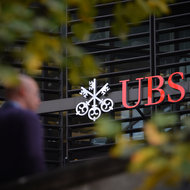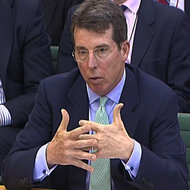Libor, if you have not been paying attention, is the London interbank offered rate — or rates, since there are dozens of them. For decades, it has been the dominant determinant of floating interest rates, with trillions of dollars in loans and derivatives priced off those rates.
Now it is ridiculous. It purports to be the rate at which banks can borrow, without collateral, from each other. Every day banks submit the rates at which they could borrow money, on an unsecured basis, in various currencies and varying maturities. Those rates are averaged, after the highest and lowest ones are eliminated, and that becomes that day’s Libor rate.
These days there is a problem: banks almost never borrow from each other, particularly at longer maturities. So the rates are fictitious — or at least not based on any information that could be verified.
Before, during and after the credit crisis, the rates were being manipulated by bankers, often with the approval of top management. Sometimes the motive was to make the bank look better — what does it say about a bank if its peers evidently will not lend money to it at the same rate they will lend to others? — but other times the motive was just to rig markets so traders could make money. It was sort of like betting on a soccer match: profits are much more likely if you fix the match before you place your bet.
Three major banks — Barclays, UBS and the Royal Bank of Scotland — were fined a total of $2.5 billion by authorities in Britain and the United States. It appeared to be a case of international regulatory cooperation at its best.
But now that cooperation is breaking down. In the United States, Gary Gensler, the chairman of the Commodity Futures Trading Commission and the man whose determination to do something helped to expose criminal behavior that evidently did not seem all that outrageous to some others, is pushing to get rid of Libor entirely. He argues that it no longer really exists, assuming it ever did, and wants to find a new benchmark for floating interest rate contracts.
But Britain and the European Commission appear to be determined to save Libor, whether or not it really means what it is supposed to mean. This week new governance rules took effect in Britain, and the European Commission is moving in the same direction. The new rules call for better governance, with efforts made to assure there is no cheating by traders.
Some banks, understandably, would just as soon get out of a business that has sullied reputations and cost billions. Some have tried to resign from the panels that determine Libor and its cousin, Euribor, a similar but less widely used system of base rates. But both European and British regulators view the existence of the benchmarks as critical and have warned banks not to leave.
“Interbank interest rate benchmarks are of systemic importance,” said Michel Barnier, the European commissioner in charge of markets. He said European legislation would force banks to submit rates.
To Mr. Gensler, the American regulator, the Europeans are moving in the wrong direction. “We have seen a significant amount of publicly available market data that raises questions about the integrity of Libor today,” he said in a speech last month. He said that there was very little unsecured interbank trading going on, and that even when other interest rates fluctuated widely — rates that include credit-default swaps on the very same banks — each bank tended to submit the same rates day after day.
He noted that a task force of the International Organization of Securities Commissions recommended earlier this year that “a benchmark should as a matter of priority be anchored by observable transactions entered into at arm’s length between buyers and sellers in order for it to function as a credible indicator of prices, rates or index values,” adding, “I agree with this.”
To put it mildly, there is no reason to think the interbank lending market fits that bill now, and there are reasons to think it will be even less true in the future. Mr. Gensler said some banks believed the new Basel capital rules regarding liquidity would make it prohibitively expensive for one bank to lend to another for more than 30 days at a time. If so, there will be no such lending.
Mr. Gensler would like to develop an alternative and points to two options. One would essentially be dependent on the Federal Reserve’s setting of the federal funds rate — the rate at which it will lend to banks. The other would be based on rates charged on secured loans. In each case these are real markets, at least in dollar-based transactions. He would like to phase in one of them as a replacement for Libor.
Floyd Norris comments on finance and the economy at nytimes.com/economix.
Article source: http://www.nytimes.com/2013/04/05/business/steering-a-better-course-past-the-fiction-of-libor.html?partner=rss&emc=rss




